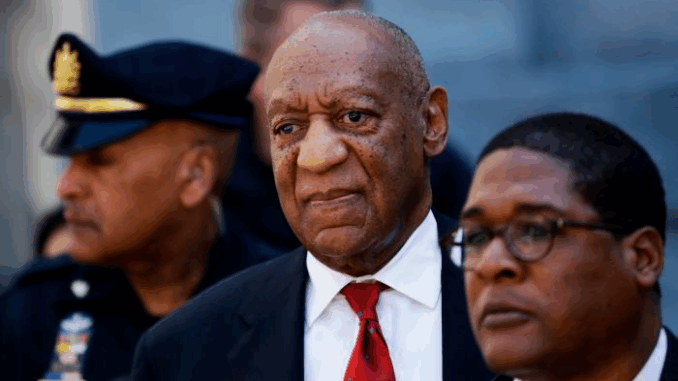
Bill Cosby was once a beloved figure in American entertainment—a groundbreaking comedian, actor, and producer who broke racial barriers and redefined family television. Yet in a stunning reversal, Cosby’s legacy now stands overshadowed by a series of sexual assault allegations that culminated in criminal charges, a conviction, and ongoing public debate.
From Comedy Clubs to Cultural Icon
Born on July 12, 1937, in Philadelphia, Pennsylvania, Bill Cosby began his career in stand-up comedy in the early 1960s. His sharp wit and clean humor quickly made him a household name. He became the first Black actor to star in a dramatic television series with I Spy (1965–1968), earning three consecutive Emmy Awards.
Cosby’s most significant cultural impact came with The Cosby Show (1984–1992), a sitcom he created and starred in as Dr. Heathcliff Huxtable. The show depicted an upper-middle-class African-American family and broke ground for its positive representation of Black life on American television. It dominated ratings and was praised for its educational and family-friendly messages.
Allegations and Legal Battles
Despite his wholesome public image, Cosby faced persistent allegations of sexual misconduct dating back decades. In 2014, renewed media attention and mounting testimonies from dozens of women brought the accusations into sharp public focus.
In 2018, Cosby was convicted of drugging and sexually assaulting Andrea Constand, a former Temple University employee, in a high-profile case seen as a milestone in the #MeToo movement. He was sentenced to three to ten years in prison.
However, in June 2021, the Pennsylvania Supreme Court overturned the conviction on procedural grounds, citing a violation of Cosby’s due process rights due to a prior non-prosecution agreement. He was released from prison after serving nearly three years.
Legacy Under Scrutiny
Cosby’s legal victory did little to restore his public reputation. Institutions distanced themselves, honors were revoked, and his shows were removed from syndication. While some supporters claim he was unfairly targeted, many believe the volume and consistency of allegations are impossible to ignore.
Today, Cosby’s legacy remains deeply controversial. He is remembered both as a pioneer who helped reshape television and as a symbol of the entertainment industry’s reckoning with long-ignored abuses of power.
